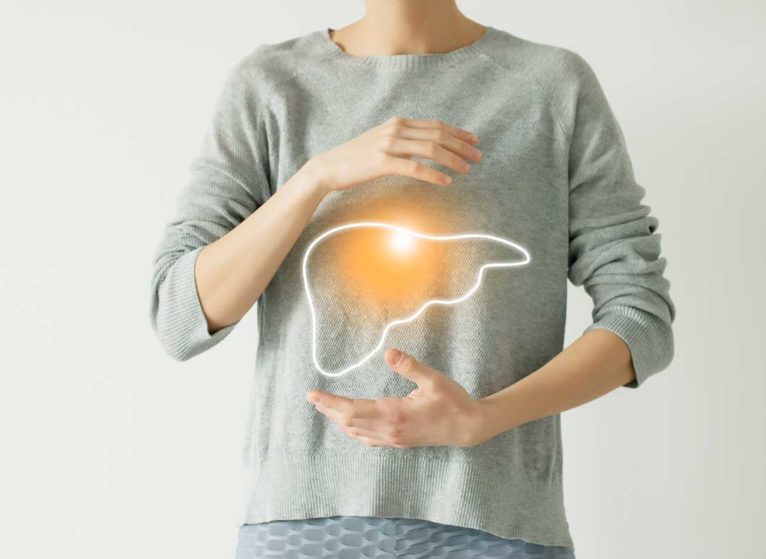October is Liver Cancer Awareness month. If you have any of these symptoms of liver disease, it may be time to see a doctor.
Your liver is an essential organ. It filters your blood and gets toxins out of your body. It helps you digest food. Your liver also makes stuff your body needs. That’s just some of the hundreds of vital functions your liver does every day.
But what happens if there is something wrong with your liver? Would you recognize the signs and know what to do?
Unfortunately, most issues with your liver don’t cause noticeable symptoms early on. That means you may not know something is wrong right away. “The liver is like a black box,” says Stephen Caldwell, MD, a liver disease specialist at UVA Health. “Some patients get referred to the liver team from their primary care doctor complaining of just feeling crappy.”
Here are answers to common questions about liver health — what conditions can damage your liver, what signs you should pay attention to, and how to keep your liver healthier.
What Can Go Wrong With My Liver?
There are a number of conditions that may affect your liver. These include:
- Hepatitis
- Cirrhosis
- Fatty liver disease
- Liver cancer
- Liver failure
Genetic conditions may also affect your liver.
- Hepatitis: A virus that causes inflammation in your liver. It may affect your liver function. There are different strains of the virus (hepatitis A, B, and C).
- Cirrhosis: Causes scarring of your liver. As scar tissue replaces healthy liver tissue, it may cause the liver to stop working properly.
- Fatty liver disease: This is becoming more common in the U.S. because of rising rates of obesity. Too much fat in your liver may cause nonalcoholic fatty liver disease. Drinking too much alcohol can result in alcoholic fatty liver disease. “Young, professional women are among the largest growing population with advanced alcoholic liver disease,” says Caldwell.
- Liver cancer: It may develop when abnormal cells multiply in your liver. However, it’s more common for cancer to spread to your liver from another area in your body.
- Liver failure: This can happen when any liver condition progresses over time. Although this can be life-threatening, there are treatments that can slow down the progress of your condition. In some cases, you might need a liver transplant.
What Are the Signs of Liver Disease or Damage?
Although you may have no symptoms of liver disease, especially in its earliest stages, don't ignore these symptoms. Talk with your doctor if you have:
Think You Have Symptoms of Liver Disease?
We can check you out and refer you to a specialist
- Jaundice (a yellowing of the skin and whites of the eyes)
- Pain or swelling in the abdomen
- Easy bruising
- Itchy skin
- Swelling in legs or ankles
- Losing weight without trying
- Loss of appetite
- Nausea and vomiting
- Weakness or constant fatigue
- White, chalky stools
- Low blood pressure
- Loss of balance or confusion
- Tremors (shaking)
Other conditions can cause these symptoms. To test liver function, a simple blood test is usually done. Other tests, such as an ultrasound, CT scan, MRI, or biopsy, may also be ordered if liver damage or cancer are suspected.
How Can I Avoid Liver Disease?
There’s no guarantee that you can prevent liver disease, but these tips may lower your risk:
- Avoid drinking too much alcohol.
- Avoid illegal drugs and chemical exposure.
- Don’t smoke.
- Practice safe sex to avoid hepatitis.
- Don’t share needles, razors, or other personal care items.
- Pay attention to warnings about medications. Sometimes, not following the directions can damage your liver. Be especially careful about mixing medications and alcohol.
- Maintain a healthy weight, eat a nutritious diet, and exercise regularly.


Really helpful article—it’s good to know there are effective treatments out there for liver damage. Thanks for breaking it down in a way that’s easy to understand.